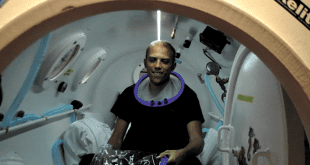 Autism Spectrum Disorder (ASD) affects 1 in 54 children (18.5 per 1,000 8-year-olds). Boys are more than four times as likely to be identified with ASD than girls.1 Many parents sense developmental delays or notice their child has an issue between 12 months and 2 years, but often it can go undiagnosed for many years.1
Autism Spectrum Disorder (ASD) affects 1 in 54 children (18.5 per 1,000 8-year-olds). Boys are more than four times as likely to be identified with ASD than girls.1 Many parents sense developmental delays or notice their child has an issue between 12 months and 2 years, but often it can go undiagnosed for many years.1
BCOTB (Behavioral Consulting of Tampa Bay) is the go-to Autism Spectrum Disorder expert and one of the first clinics of its kind in the Tampa Bay area. BCOTB has been offering services to children with autism and related disorders since 2003 and now offers services at 4 clinic locations to better serve you. BCOTB is owned and operated by a Board Certified Behavior Analyst (BCBA) and has been recognized for numerous awards over the past decade.
BCOTB’s programs are designed to address a child’s skill deficits as well as problem behaviors and are created to meet the individual needs of the child. The goal of the programming is to teach children the necessary behaviors/skills to be independent and thrive in a variety of environments such as their home, school, and community settings. Skills taught during the intensive 1:1 therapy sessions include, but are not limited to, language/communication skills, social skills, academic skills, self-help skills, and independent behavior. The goals are taught using researched-based behavioral strategies and are graphed and tracked during each session to ensure success.
Kelley Prince, M.A., BCBA, President and Founder of BCOTB spoke to us about their programs, services and Autism Spectrum Disorder in general, “Parents are the experts on their own children and often have a gut feeling when they feel that there is something “different” about their child. Usually this is when the child is as young as 12 or 18 months of age. Since the signs of autism are very slight early on (social delays), a medical professional may tell the family to wait until the next appointment to see if their child makes any progress. Most families refrain from seeking a professional opinion until much later when the child isn’t making the language gains of their peers. This can be anywhere from 24-36 months of age.
“I encourage caregivers to seek an evaluation from a specialist such as a psychologist or a neurologist familiar with Autism Spectrum Disorder or other developmental and behavioral conditions as soon as they feel that something may be “off”. Parents should always follow their “gut” feelings and get an in-depth assessment and analysis. The younger a child is diagnosed, the better they respond to therapy. Early intervention shows better outcomes at a quicker rate.
“For example, if a child doesn’t get diagnosed or doesn’t receive therapy until say age seven, they have seven years of delays and behavioral habits to overcome, whereas a younger child has less of a gap to learn age-appropriate skills. 98% of our patients are diagnosed with ASD; however, we treat other conditions such as Down Syndrome and behavioral conditions, as well.”
“Since Autism is a spectrum disorder, some children with ASD exhibit only a few signs of the disorder that show up in the early months of infancy while others may display multiple signs and delays that are undiagnosed until much later. What should parents look for if concerned?
Signs by age (Published by Autism Speaks):2
By 6 months
• Few or no big smiles or other warm, joyful and engaging expressions
• Limited or no eye contact
By 9 months
• Little or no back-and-forth sharing of sounds, smiles or other facial expressions
By 12 months
• Little or no babbling
• Little or no back-and-forth gestures such as pointing, showing, reaching or waving
• Little or no response to name
By 16 months
• Very few or no words
By 24 months
• Very few or no meaningful, two-word phrases (not including imitating or repeating)
At any age
• Loss of previously acquired speech, babbling or social skills
• Avoidance of eye contact
• Persistent preference for solitude
• Difficulty understanding other people’s feelings
• Delayed language development
• Persistent repetition of words or phrases (echolalia)
• Resistance to minor changes in routine or surroundings
• Restricted interests
• Repetitive behaviors (flapping, rocking, spinning, etc.)
• Unusual and intense reactions to sounds, smells, tastes, textures, lights and/or colors
Kelley added, “My best friend’s son was just not quite where he needed to be developmentally. At his 18-month checkup, his doctor said these issues were nothing to worry about and to wait for his 24-month checkup. I encouraged my friend to see a psychologist that I work with regularly and, after an in-depth assessment, he was diagnosed with mild ASD.
“At BCOTB, after a child is diagnosed, we recommend and conduct a full evaluation of the child’s skills and create customized plans for working with the child on a whole level, which usually includes language, social skills, self-help, problem behaviors, and communication. We also provide programs and services for children that do not have a diagnosis but may engage in problem behavior.
“Our programs depend on skill level, condition, and response of the learner. We prefer to work with children for at least 10 hours per week or more, as repetition is critical. For example, if we are teaching a child to walk next to their parent or caregiver while in a store (i.e. not running off), we see better results and quicker skill acquisition when the training is practiced 100 times per week rather than 10 times per week. Repetition and reinforcement of the target skill is a key element of Applied Behavior Analysis (ABA) therapy.”
BCOTB Services:
• Verbal Behavior Program (language training)
• Feeding Therapy
• Individualized Education Plan (IEP) development and support
• Social Skills/Peer Play
• Functional Behavior Assessments
• Toilet Training
• School Shadowing
• SRA Programs for Reading, Language and Math
• Problem Behavior Reduction Programs
Most major insurance covers BCOTB services and programs but, in most cases, a diagnosis is important for reimbursement purposes.
President/Founder Kelley Prince, M.A., BCBA
“My career in applied behavior analysis began in 1998 when I began providing behavioral therapy services for a family who had a child with autism. I was immediately intrigued by all of the benefits that such therapy had to offer, and I immediately knew I wanted to learn more about how I could help other children and their families. I studied Applied Behavior Analysis at the University of South Florida, graduating with a master’s degree in 2004. In 2003, while in my last year of graduate school, I founded BCOTB. At the time, it was one of the only clinic of its kind in the Tampa Bay area in which Applied Behavior Analysis services were offered.
“Since 2003, BCOTB has grown to four office locations and employs 75+ people in the Tampa Bay Area. Our original location was opened in 2007, which we quickly outgrew. Since that time, the Tampa location has expanded two more times and currently resides off of Hillsborough Avenue right outside of Westchase. Knowing that BCOTB wanted to be able to reach more clients in the autism community, we opened our first satellite location in 2009 in Wesley Chapel. This location also quickly expanded and has recently relocated to a larger facility located outside the Seven Oaks subdivision and services the clients in the New Tampa, New Port Richey and Wesley Chapel area. Our third phase of expansion occurred in 2013 when we opened our Brandon facility. Located at the corner of 301 and Adamo Drive, the Brandon facility services clients from MacDill AFB, Lakeland, Valrico, Brandon and Riverview areas. And, finally, in 2018, BCOTB opened its 4th clinic location on North Dale Mabry Highway in Carrollwood and is now considered our main location.
“I am proud to say that BCOTB has had a successful past and is continuing to grow. The success of our business can be attributed to our management structure, policies and procedures and, most importantly, our therapy team.
“All of BCOTB’s therapists receive training which meets the requirements for the Registered Behavior Technician credential provided by the Behavior Analyst Certification Board and successfully complete competency assessments. Staff receives ongoing performance reviews to ensure they are utilizing appropriate teaching and behavior reduction procedures in order to maximize your child’s progress.”
To find out more, please visit www.bcotb.com or contact one of the BCOTB offices below:
Brandon
9225 Bay Plaza Blvd., Suite 401
Tampa, FL 33619
(813) 440-4933
Carrollwood
14497 N. Dale Mabry Hwy
Suite 115-N
Tampa, FL 33618
(813) 814-2000
Westchase/Oldsmar
6951 Pistol Range Road, Suite 101
Tampa, FL 33635
(813) 696-0700
Wesley Chapel
27604 Cashford Circle
Wesley Chapel, FL 33544
(813) 345-8584
References:
1. CDC, Centers for Disease Control and Prevention, Autism Spectrum Disorder (ASD), Autism and Developmental Disabilities Monitoring (ADDM) Networkhttps://www.cdc.gov/ncbddd/autism/addm.html
2. Autism Speaks, What are the Signs of autism?
https://www.autismspeaks.org/signs-autism
 Central Florida Health and Wellness Magazine Health and Wellness Articles of the Villages
Central Florida Health and Wellness Magazine Health and Wellness Articles of the Villages


